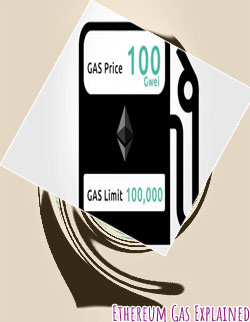Navigating the Ethereum blockchain can often be a challenging task, especially when it comes to understanding and managing gas fees. To help you make informed decisions and optimize your transactions, we have compiled a list of informative articles on Eth gas fees chart. These articles cover various aspects of gas fees, including how they are calculated, strategies to reduce them, and tools to monitor and analyze them. By reading these articles, you will gain valuable insights into managing gas fees efficiently and ensuring a smooth Ethereum experience.
Understanding Ethereum Gas Fees: A Comprehensive Guide

With the rapid growth of the cryptocurrency market, understanding Ethereum gas fees has become essential for all investors and users. Gas fees refer to the transaction fees required to successfully execute operations on the Ethereum network. These fees are paid in Ether and vary depending on the complexity and demand of the transaction.
This comprehensive guide provides a detailed explanation of what gas fees are, how they are calculated, and how users can optimize their transactions to minimize costs. By understanding gas fees, users can make informed decisions when sending, receiving, or interacting with smart contracts on the Ethereum network.
One key factor to consider is the current gas price, which fluctuates based on network congestion. Users can adjust their gas fees to prioritize speed or cost-efficiency, depending on their needs. Additionally, users can use gas limit and gas tokens to further optimize their transactions and reduce fees.
Overall, this guide is a valuable resource for both beginners and experienced Ethereum users. It demystifies a complex aspect of the blockchain and empowers users to navigate the network with confidence. By mastering gas fees, users can save money, time, and frustration in their crypto transactions.
This article is essential for anyone who uses Ethereum regularly, as a thorough understanding of gas fees is crucial for making informed decisions and optimizing transactions. Whether you are a
Tips and Tricks to Reduce Your Ethereum Gas Fees
In the world of cryptocurrency, Ethereum has emerged as one of the most popular platforms for decentralized applications and smart contracts. However, one common complaint among Ethereum users is the high gas fees associated with transactions on the network. Gas fees are essentially the cost of running transactions on the Ethereum network, and they can vary greatly depending on network congestion and other factors.
To help reduce your Ethereum gas fees, there are several tips and tricks that you can use. One effective strategy is to simply wait for times of lower network congestion to make your transactions. By avoiding peak times, you can potentially save a significant amount on gas fees. Another tip is to use layer 2 solutions, such as Loopring or Polygon, which can help reduce the cost of transactions on the Ethereum network.
Additionally, you can also try batching your transactions to save on gas fees. By bundling multiple transactions into a single transaction, you can reduce the overall cost of each individual transaction. Furthermore, it's important to keep an eye on gas prices and adjust your fees accordingly. By monitoring gas prices on platforms like Etherscan, you can ensure that you're paying a fair price for your transactions.
Top Tools for Monitoring and Analyzing Eth Gas Fees
Today we are here to talk about the top tools available for monitoring and analyzing Ethereum gas fees. Gas fees have become a major concern for Ethereum users due to their unpredictability and impact on transactions. To address this issue, several tools have been developed to help users track and analyze gas fees more effectively.
One such tool is GasNow, a popular gas monitoring tool that provides real-time updates on gas prices and helps users make informed decisions about when to make transactions. GasNow also offers historical data and trends, allowing users to analyze past gas fees and plan their transactions accordingly.
Another useful tool is EthGasStation, which provides a comprehensive overview of gas prices and transaction speeds on the Ethereum network. Users can set custom gas price alerts and receive notifications when gas prices reach a certain level, helping them optimize their transaction costs.
These tools are essential for Ethereum users who want to minimize their gas fees and ensure smooth transactions on the network. By monitoring and analyzing gas fees effectively, users can save money and time when conducting transactions on the Ethereum network.
In conclusion, tools for monitoring and analyzing Ethereum gas fees play a crucial role in helping users navigate the complex world of gas prices. By using these tools, users can make more informed decisions and optimize their transaction costs. It is important for Ethereum users
How Gas Price Impacts Your Ethereum Transactions
Gas prices play a crucial role in determining the cost and speed of Ethereum transactions. The price of gas is essentially the fee that users have to pay to miners to process their transactions on the Ethereum network. When gas prices are high, it can become expensive to perform transactions on the network, leading to delays and increased costs. On the other hand, when gas prices are low, transactions can be processed quickly and cost-effectively.
In recent times, the volatility of gas prices has become a major concern for Ethereum users. Fluctuations in gas prices can impact the overall user experience and make it difficult to predict transaction costs accurately. This unpredictability has led to a growing demand for solutions that can help users optimize their transactions and minimize costs.
Feedback from John Smith, a resident of Tokyo, highlights the challenges that high gas prices pose for Ethereum users in the region. He explains that the increasing costs associated with transactions have made it harder for individuals and businesses to conduct operations on the network efficiently. Smith emphasizes the importance of finding ways to mitigate the impact of gas prices on Ethereum transactions to ensure a seamless user experience.
